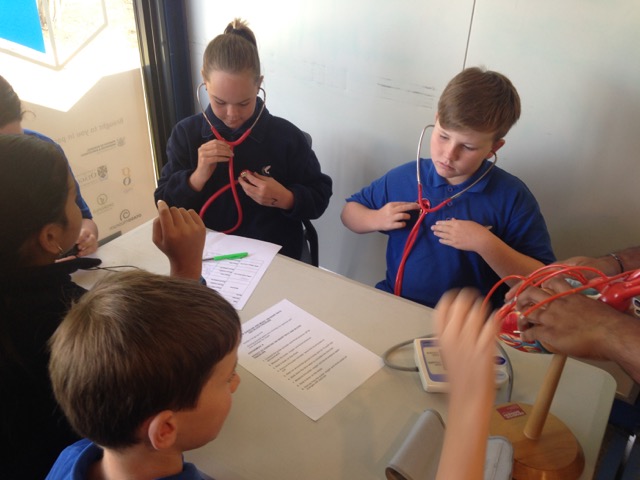The Department of Physiology is involved with various high school outreach activities, ranging from participating in the annual Hands-On at Otago (formerly Hands on Science) where students spend a week within the department performing some fun experiments, to visiting marae all over the country with the University of Otago Science Wānanga programme.
Visit the Department of Physiology
We offer the opportunity for local high schools to come into the department for 2-hour sessions, where we can design a hands-on experimental class run by our academic staff. These are intended to work in with NCEA Level 2 or 3 Biology Unit / Achievement Standards (AS91604 specifically deals with homeostasis—a core concept in Physiology), but can also just be a way for local students to get a taste of a university lab class.
Schools who have already taken part in one of our sessions say:
"The feedback we've have from the students is that they found the whole trip fascinating and so useful and relatable. [We] are looking forward to future trips to your department."
and
"The students really enjoyed the lab. It made everything real for them and easier to understand. We will definitely put it on the calendar for next year."
If you are interested in bringing your biology class into the department, please contact Associate Professor / Deputy HOD (Teaching) Phil Sheard:
Email phil.sheard@otago.ac.nz
Lab In A Box
 A number of our teachers are also involved in Lab In A Box (LIAB) - a mobile science laboratory, built in a 20 foot shipping container. LIAB is for rural communities that aren't readily exposed to science or scientists, aims to work particularly with primary and intermediate age schools, as well as engaging communities.
A number of our teachers are also involved in Lab In A Box (LIAB) - a mobile science laboratory, built in a 20 foot shipping container. LIAB is for rural communities that aren't readily exposed to science or scientists, aims to work particularly with primary and intermediate age schools, as well as engaging communities.
Otago University Advanced School Sciences Academy
The Department of Physiology runs a joint project with the Department of Anatomy called "Control of Movement". This programme is aimed at Year 13 students and is open to all students with a passion for science who attend a small or rural/provincial or lower decile (≤6) school. For more information about the programme, see Science Academy.